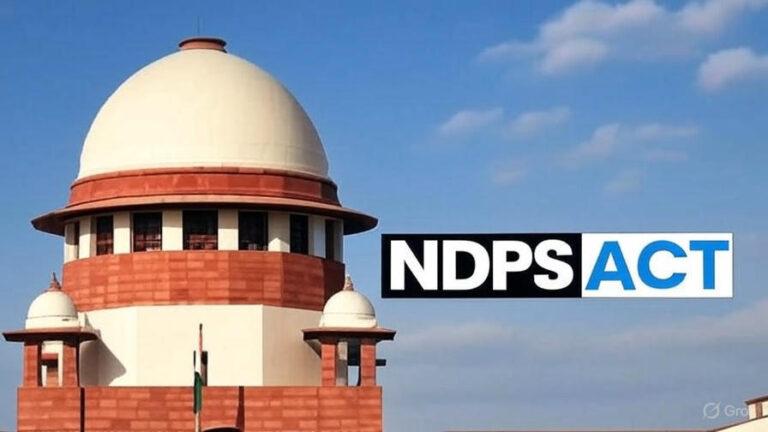The Supreme Court on 17 July 2025 clarified that Section 32B of the Narcotic Drugs and Psychotropic Substances Act, 1985 (NDPS Act) does not prevent the trial court from awarding sentence beyond minimum sentence of 10 years even if the aggravating factors listed in that section are not present.
This clarification came in a case titled Narayan Das vs State of Chhattisgarh, where the appellant was earlier convicted by a Special Judge (NDPS) under Section 21(c) of the NDPS Act for possessing 236 vials of cough syrup containing codeine phosphate, a controlled psychotropic substance.
The trial court had sentenced the accused to 12 years rigorous imprisonment with a fine of ₹1,00,000.
Read also:- Supreme Court: Entire Appeal Fails If Legal Heirs of Deceased in Joint Decree Are Not Added in Time
However, when the matter went to the Chhattisgarh High Court, the conviction was upheld but the sentence was reduced to 10 years. The High Court cited an earlier Supreme Court judgment in Rafiq Qureshi vs Narcotics Control Bureau Eastern Zonal Unit (2019), which held that unless aggravating factors under Section 32B(a) to (f) are present, a sentence higher than the statutory minimum cannot be imposed.
Challenging this view, the appellant approached the Supreme Court through advocate-on-record Ashish Pandey and argued that the seizure was illegal due to procedural flaws.
But the Supreme Court, comprising Justices J.B. Pardiwala and R. Mahadevan, dismissed the special leave petition (SLP) and upheld the High Court's interpretation of Section 32B.
Read also:- Supreme Court Questions BCI on Relaxing AIBE Fee for Poor Law Graduates
"We are afraid that the High Court's understanding is not correct," the court said.
The bench emphasised that Section 32B only lists certain factors that can be considered. It does not prevent the court from considering other relevant facts, such as the quantity of the contraband, the nature of the substance, or the criminal antecedents of the accused.
The Supreme Court said, "Section 32B provides that the court may, in addition to various relevant factors, take into account the factors specified in clauses (a) to (g)… In such circumstances, the High Court had no compelling reason to reduce the sentence from 12 years to 10 years on the basis of Rafiq Qureshi."
The Court further clarified that the judgment in Rafiq Qureshi has not been properly construed and was never intended to limit the discretion of the court to award a higher sentence.
Read also:- SC Criticises High Courts for Granting Undue Interim Relief in SARFAESI Cases
The bench said, "In Rafiq Qureshi, the Court had clarified that the language of Section 32B naturally reserves the discretion of the court."
Thus, the Supreme Court upheld the lower court's decision to award 12 years and held that the gravity of the offence and the quantity of the intoxicants involved justified a sentence higher than the minimum period.
Case Title: Narayan Das vs State of Chhattisgarh
Special Leave Petition (Criminal Appeal) No. 2025 [Diary No. 30825/2025]
Date of Judgment: 17 July 2025















